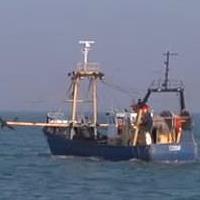(BRUSSELS) – The European Union called for WTO talks on fishery subsidies Monday to combat the depletion of fish stocks and the devastation of natural habitats.
Almost 60 per cent of fish resources are at the limit of sustainability, according to the estimates from the UN Food and Agriculture Organization (FAO).
The global fishing fleet is now far too large to ensure sustainable fishing and the overall picture is alarming across the globe.
The issue has been part of the WTO Doha Round and some free trade agreements. Some smaller initiatives between groups of countries have also been undertaken recently. None of them could however sufficiently address the real scale of the problem.
While curbing harmful subsidies, the EU proposal foresees exceptions for developing countries, and takes account of the needs of local fishing communities in least developed and developing countries.
Commissioner for Trade Cecilia Malmstroem and Commissioner for the Environment, Maritime Affairs and Fisheries Karmenu Vella wrote in a blog post: “A broad, multilateral agreement on harmful fishing subsidies will be key to safeguarding the world’s fisheries. We call upon other members of the WTO to join us in addressing this massive global challenge together, and to implement the commitments we made in the UN Sustainable Development Goals. Negotiations should start immediately, in order to reach an agreement at the next WTO Ministerial Conference in December of next year.”
The proposal from the Commission has now been given the green light of the EU Member States, and will be presented to all WTO members later this week.
The proposal addresses two forms of harmful subsidies, namely those that directly increase the capacity of fleets to catch fish and those that contribute to illegal, unregulated or unreported fishing.
While the rapidly growing capacity of industrial fleets needs to be addressed, subsistence fishing needs to be protected. The EU proposal is in line with commitments made in the UN Sustainable development goals to prohibit certain forms of fisheries subsidies through the WTO by 2020.



